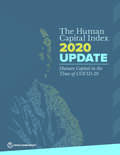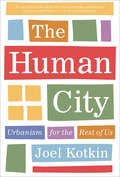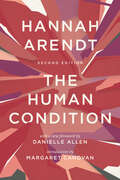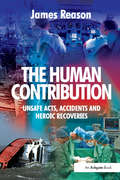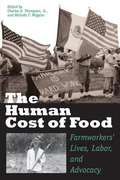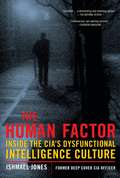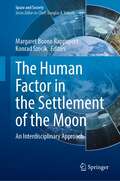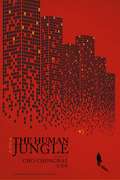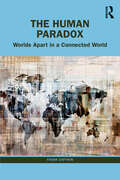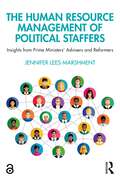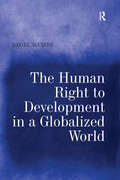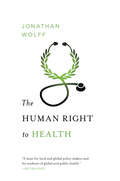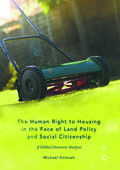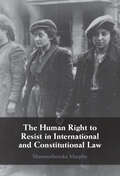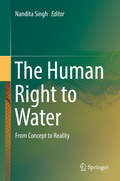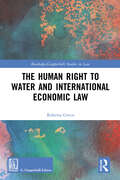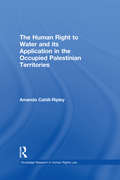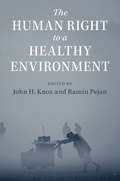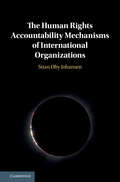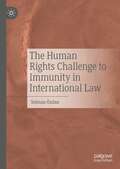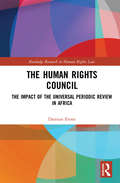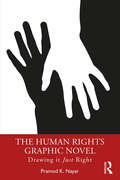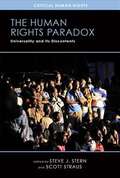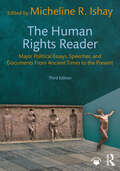- Table View
- List View
The Human Capital Index 2020 Update: Human Capital in the Time of COVID-19
by World BankHuman capital—the knowledge, skills, and health that people accumulate over their lives—is a central driver of sustainable growth, poverty reduction, and successful societies. More human capital is associated with higher earnings for people, higher income for countries, and stronger cohesion in societies. Much of the hard-won human capital gains in many economies over the past decade is at risk of being eroded by the COVID-19 (coronavirus) pandemic. Urgent action is needed to protect these advances, particularly among the poor and vulnerable. Designing the needed interventions, targeting them to achieve the highest effectiveness, and navigating difficult trade-offs make investing in better measurement of human capital now more important than ever. The Human Capital Index (HCI)—launched in 2018 as part of the Human Capital Project—is an international metric that benchmarks the key components of human capital across economies. The HCI is a global effort to accelerate progress toward a world where all children can achieve their full potential. Measuring the human capital that children born today can expect to attain by their 18th birthdays, the HCI highlights how current health and education outcomes shape the productivity of the next generation of workers and underscores the importance of government and societal investments in human capital. The Human Capital Index 2020 Update: Human Capital in the Time of COVID-19 presents the first update of the HCI, using health and education data available as of March 2020. It documents new evidence on trends, examples of successes, and analytical work on the utilization of human capital. The new data—collected before the global onset of COVID-19—can act as a baseline to track its effects on health and education outcomes. The report highlights how better measurement is essential for policy makers to design effective interventions and target support. In the immediate term, investments in better measurement and data use will guide pandemic containment strategies and support for those who are most affected. In the medium term, better curation and use of administrative, survey, and identification data can guide policy choices in an environment of limited fiscal space and competing priorities. In the longer term, the hope is that economies will be able to do more than simply recover lost ground. Ambitious, evidence-driven policy measures in health, education, and social protection can pave the way for today’s children to surpass the human capital achievements and quality of life of the generations that preceded them.
The Human City: Urbanism for the Rest of Us
by Joel KotkinThe author of The Coming of Neo-Feudalism and The New Class Conflict challenges conventions of urban planning. Around the globe, most new urban development has adhered to similar tenets: tall structures, small units, and high density. In The Human City, Joel Kotkin―called &“America&’s uber-geographer&” by David Brooks of the New York Times―questions these nearly ubiquitous practices, suggesting that they do not consider the needs and desires of the vast majority of people. Built environments, Kotkin argues, must reflect the preferences of most people―even if that means lower-density development. The Human City ponders the purpose of the city and investigates the factors that drive most urban development today. Armed with his own astute research, a deep-seated knowledge of urban history, and a sound grasp of economic, political, and social trends, Kotkin pokes holes in what he calls the &“retro-urbanist&” ideology and offers a refreshing case for dispersion centered on human values. This book is not anti-urban, but it does advocate a greater range of options for people to live the way they want at all stages of their lives.Praise for The Human City &“Kotkin . . . presents the most cogent, evidence-based and clear-headed exposition of the pro-suburban argument . . . . In pithy, readable sections, each addressing a single issue, he debunks one attack on the suburbs after another. But he does more than that. He weaves an impressive array of original observations about cities into his arguments, enriching our understanding of what cities are about and what they can and must become.&” —Shlomo Angel, Wall Street Journal &“The most eloquent expression of urbanism since Jane Jacobs&’s The Death and Life of Great American Cities. Kotkin writes with a strong sense of place; he recognizes that the geography and traditions of a city create the contours of its urbanity.&” —Ronnie Wachter, Chicago Tribune
The Human Condition: Second Edition
by Hannah ArendtThe renowned political thinker and author of The Origins of Totalitarianism examines the troubling consequences of humanity’s increasing power.A work of striking originality, The Human Condition is in many respects more relevant today than when it first appeared in 1958. In her study of the state of modern humanity, Hannah Arendt considers humankind in terms of its ever-expanding capabilities. Her analysis reveals a troubling paradox: that as human powers increase through technological and humanistic inquiry, we are less equipped to control the consequences of our actions. This new edition contains Margaret Canovan’s 1998 introduction and a new foreword by Danielle Allen. A classic in political and social theory, The Human Condition offers a penetrating analysis of a conundrum that has only become more acute in the 21st century.
The Human Contribution: Unsafe Acts, Accidents and Heroic Recoveries
by James ReasonThis book explores the human contribution to the reliability and resilience of complex, well-defended systems. Usually the human is considered a hazard - a system component whose unsafe acts are implicated in the majority of catastrophic breakdowns. However there is another perspective that has been relatively little studied in its own right - the human as hero, whose adaptations and compensations bring troubled systems back from the brink of disaster time and again. What, if anything, did these situations have in common? Can these human abilities be ’bottled’ and passed on to others? The Human Contribution is vital reading for all professionals in high-consequence environments and for managers of any complex system. The book draws its illustrative material from a wide variety of hazardous domains, with the emphasis on healthcare reflecting the author’s focus on patient safety over the last decade. All students of human factors - however seasoned - will also find it an invaluable and thought-provoking read.
The Human Cost of Food: Farmworkers' Lives, Labor, and Advocacy
by Charles D. Thompson Melinda F. WigginsFinding fresh fruits and vegetables is as easy as going to the grocery store for most Americans--which makes it all too easy to forget that our food is cultivated, harvested, and packaged by farmworkers who labor for less pay, fewer benefits, and under more dangerous conditions than workers in almost any other sector of the U.S. economy. <P><P>Seeking to end the public's ignorance and improve workers' living and working conditions, this book addresses the major factors that affect farmworkers' lives while offering practical strategies for action on farmworker issues. The contributors to this book are all farmworker advocates--student and community activists and farmworkers themselves. Focusing on workers in the Southeast United States, a previously understudied region, they cover a range of issues, from labor organizing, to the rise of agribusiness, to current health, educational, and legal challenges faced by farmworkers. The authors blend coverage of each issue with practical suggestions for working with farmworkers and other advocates to achieve justice in our food system both regionally and nationally.
The Human Face of the European Union
by Nuno Ferreira Dora Kostakopoulou Julia Bradshaw Swati GolaThis collection asks a direct but complex question: is the EU humane enough? The implementation of EU law and policy and its balance between economic and social values continues to provoke debate. Providing fresh insight, Nuno Ferreira and Dora Kostakopoulou present a novel analytical framework, centred on the notion of humaneness, for assessing EU law and policy. This innovative approach leads to recommendations for policy change towards a more humanistic philosophy for the EU. Broad in its scope, this remarkable volume draws together interdisciplinary perspectives from contributors who examine key EU law and policy fields, including economic integration, asylum and free movement, citizenship and development, and security. This book is essential reading for scholars, students and policy-makers seeking new ways of exploring the economic versus social values debate in EU law.
The Human Factor
by Ishmael JonesGeorge W. Bush's presidency was poisoned by a lack of human source intelligence on 9/11, Iraq and weapons of mass destruction. Carter was humiliated by the hostage crisis in Iran. The Bay of Pigs was President Kennedy's greatest blunder. Vietnam ended the Johnson presidency and Korea ended Truman's. In each case, American blood and treasure were spent; and in each case, a lack of reliable intelligence played a great role.CIA officers are, needless to say, skilled and accomplished professionals. Unfortunately, the organization they inhabit is stifling, misguided, and careless. In the darkness of secrecy, with unlimited tax dollars and little or no accountability, the CIA bureaucracy has mutated into a leviathan that serves its own aims.From 1989 to 2002, Ishmael Jones carried out continuous field assignments for the CIA, pursuing WMD targets in the Middle East and Europe and terrorist targets in the Iraq War. Appalled by the stifling layers of bureaucracy and unable to reform the agency from within, Jones resigned with an unblemished record and this astonishing story to tell.The Human Factor is the story of a deep-cover agent facing both the day-to-day obstacles of survival and ludicrous challenges from his own agency's impenetrable bureaucracy. If the CIA is to be fixed-and for our own security it must be-The Human Factor may constitute the first step in that direction.
The Human Factor in the Settlement of the Moon: An Interdisciplinary Approach (Space and Society)
by Konrad Szocik Margaret Boone RappaportApproaching the settlement of our Moon from a practical perspective, this book is well suited for space program planners. It addresses a variety of human factor topics involved in colonizing Earth's Moon, including: history, philosophy, science, engineering, agriculture, medicine, politics & policy, sociology, and anthropology. Each chapter identifies the complex, interdisciplinary issues of the human factor that arise in the early phases of settlement on the Moon. Besides practical issues, there is some emphasis placed on preserving, protecting, and experiencing the lunar environment across a broad range of occupations, from scientists to soldiers and engineers to construction workers. The book identifies utilitarian and visionary factors that shape human lives on the Moon. It offers recommendations for program planners in the government and commercial sectors and serves as a helpful resource for academic researchers. Together, the coauthors ask and attempt to answer: “How will lunar society be different?”
The Human Jungle
by Bruce Fulton Ju-Chan Fulton Cho ChongnaeEqual parts muckraking novel, transnational love story, and socially engaged panorama, Cho Chongnae's The Human Jungle portrays China on the verge of becoming the world's dominant economic force.Against a backdrop of rapidly morphing urban landscapes, readers meet migrant workers, Korean manufacturers out to save a few bucks, high-flying venture capitalists, street thugs, and shakedown artists. The picture of China that emerges is at turns unsettling, awe-inspiring, and heart-breaking. Chongnae deftly portrays a giant awakening to its own raw, volatile, and often uncontrollable power.Translators Bruce Fulton and Ju-Chan Fulton have condensed three of Chongnae's Korean novels, each of which sold more than one million copies in South Korea, into this single English-language edition.Cho Chongnae is one of Korea's most important living writers. He is best known for a trio of massive historical novels: the ten-volume T'aebaek Mountains (1989), the twelve-volume Arirang (1995), and the ten-volume Han River (2002). Cho lives in Seoul, South Korea.Bruce Fulton and Ju-Chan Fulton are the translators of numerous volumes of modern Korean fiction, including the award-winning women's anthologies Words of Farewell and Wayfarer, and, with Marshall R. Pihl, Land of Exile: Contemporary Korean Fiction. They have received two National Endowment for the Arts Translation Fellowships, including the first ever given for a translation from the Korean language, and the first residency at the Banff International Literary Translation Centre awarded to translators from any Asian language. Bruce Fulton is the inaugural holder of the Young-Bin Min Chair in Korean Literature and Literary Translation at the University of British Columbia.
The Human Paradox: Worlds Apart in a Connected World
by Frank GaffikinIn The Human Paradox: Worlds Apart in a Connected World, author Frank Gaffikin probes widely and meticulously into our past and present to analyse the connections between the many acute polarisations that mark contemporary times. Addressing profound issues related to Trumpism, Brexit, the outbreak of Covid-19 and ensuing pandemic, and environmental change, the book argues that beneath all the present social tumult lies a fundamental dilemma for human stability and progress, namely how we can be estranged from what we refer to as humanity. The book begins with an appraisal of populism and authoritarian nationalism, and later explores whether, in our human development, we are bound for enhancement or extinction. Interrogating these big ideas further, the book identifies three central challenges that confront us as a society: living on the planet, living with the planet, and living with one another on the planet. These challenges prompt a re-think of what it is to be human and social, and hinging on these key themes, the book thus concludes with consideration of a radical agenda for future social improvement. Rather than peering through the conventional lenses offered by separate disciplines, this book argues for interdisciplinary appreciation and recognition, especially so if we are to address the dilemma at the center of its concern. The Human Paradox will appeal to readers interested in the major conflicts of our times, as well as students of subjects including sociology, politics, history, and economics.
The Human Resource Management of Political Staffers: Insights from Prime Ministers' Advisers and Reformers
by Jennifer Lees-MarshmentThe Human Resource Management of Political Staffers: Insights from Prime Ministers’ Advisers and Reformers explores the human resource management of political staffers and advisers who work for politicians. Deeply grounded in the experiences of those who worked in the highest political offices under Prime Ministers Boris Johnson, Justin Trudeau, Scott Morrison and Jacinda Ardern, it makes the case for better management of staffers by illuminating past problems with the workplace such as extreme workloads, little work-life balance and lack of orientation and training. But it also offers a way forward by combining ad hoc positive experiences into guidance for future best practice. Drawing on interviews with advisers/staffers and practitioners working on HR reform in politics, in four countries – the UK, Canada, Australia and New Zealand – it provides a research-informed best practice guide for the staffers/advisers, their managers and reformers which offers practical advice on how to recruit, orientate and train, manage and support staffers and advisers appropriately within the complex political environment. It also conveys the highly skilled roles staffers undertake and the democratic contribution they make. The Human Resource Management of Political Staffers is a must-have guide to current and future advisers, politicians and ministers. Human resource management for political staffers is important not just for the individuals but to enable taxpayer-funded staffers to perform more effectively, which will in turn help elected politicians deliver for voters. Chapters: Chapter 9 of this book is freely available as a downloadable Open Access PDF at http://www.taylorfrancis.com under a Creative Commons Attribution-Non Commercial-No Derivatives (CC-BY-NC-ND) 4.0 license.
The Human Right to Development in a Globalized World
by Daniel AguirreOffering a comprehensive analysis of the human right to development and its realistic application in an era of economic globalization, Daniel Aguirre provides a multidisciplinary overview of economic globalization and examines its challenges to the realization of human development. He takes this further by engaging with these challenges and highlighting the human rights opportunities presented by economic globalization and the international investment system. The volume proposes a triadic system of responsibility for human rights in development, to include mapping the overlapping human rights responsibilities of corporations at the micro-level, of states at the macro-level and of the international community at the meso-level. The scope of the book is broad and the approach to the subject is new. It will generate interest across many disciplines including political science, international law and economics. Activists, academics and development practitioners in many fields should also read this book.
The Human Right to Health (Norton Global Ethics Series)
by Jonathan Wolff"A broad-ranging, insightful analysis of the complex practical and ethical issues involved in global health."--Kirkus Reviews Few topics in human rights have inspired as much debate as the right to health. Proponents would enshrine it as a fundamental right on a par with freedom of speech and freedom from torture. Detractors suggest that the movement constitutes an impractical over-reach. Jonathan Wolff cuts through the ideological stalemate to explore both views. In an accessible, persuasive voice, he explores the philosophical underpinnings of the idea of a human right, assesses whether health meets those criteria, and identifies the political and cultural realities we face in attempts to improve the health of citizens in wildly different regions. Wolff ultimately finds that there is a path forward for proponents of the right to health, but to succeed they must embrace certain intellectual and practical changes. The Human Right to Health is a powerful and important contribution to the discourse on global health.
The Human Right to Housing in the Face of Land Policy and Social Citizenship
by Michael KolocekThis book explores the human right to housing, presenting the findings of a global discourse analysis to analyse the right to housing from the perspective of theories on land policy and social citizenship. The book concludes that planners and policy makers will not be able to completely fulfil the human right to housing. For that reason, the book presents a theory of de-commodification of land use that highlights the meaning of land use rights for people affected by inadequate housing. Students and scholars across a range of disciplines, including social policy, global social policy, human rights law, discourse theory, and sociology will find this study of interest.
The Human Right to Resist in International and Constitutional Law
by Shannonbrooke MurphyThe human right to resist is a contemporary legal concept with an ancient pedigree. Although it has received recognition in constitutions, customary international law and human rights treaties, and acknowledgment by leading publicists of international law, it remains obscure compared to other human rights. In this innovative and comprehensive book, Shannonbrooke Murphy addresses the perennial question of who has a 'right' to resist – and what, when, why, and how, from a legal perspective. Using a systematic and comparative approach to analyzing both the theoretical concept and the provisions in positive law, this study aims to establish that a 'right to resist' can be recognized and codified as an enforceable 'human right', proposing a common conceptual language and an analytical framework for evaluating the legal basis of claims. Murphy makes a strong and detailed case for a firmer place for the 'right to resist' in the human rights lexicon.
The Human Right to Water
by Nandita SinghThe discourse on the human right to water presents deliberations on the concept, content and rationale for the right, with little attention to the practical question of translating the right into reality. This book aims to fill this void by focusing on 'realization' of the right by its holders, examining how effective the mechanisms are for 'implementing' the right in enabling its universal realization. In a quest to answer this question, the book draws a conceptual differentiation between 'implementation' and 'realization' of the right, arguing that unlike implementation - which is an objective process of creation and implementation of measures such as legal frameworks, institutional structures or policy and action guidelines, realization of the right is a subjective process that extends much beyond. It takes shape within specific contextual settings which may include varied situations, yet remains neglected in the related academic and action forums. This book attempts to address this void by discussing some of the most significant contexts and the underlying problems and concerns that strongly influence realization of the human right to water. It contends that if the right is to be truly realized, these different contexts - which can be further classified as 'objective' and 'subjective' - must be understood, analysed and appropriately addressed before framing and implementing relevant action. The book further situates the human right to water discourse in a broader interdisciplinary perspective, expanding its scope beyond the narrower legal dimensions, linking it to the wider field of water resources management/governance. Through the novel ideas it proposes, the book makes an innovative and unique contribution in the field of human right to water which is of great scientific value.
The Human Right to Water and International Economic Law (Routledge-Giappichelli Studies in Law)
by Roberta GrecoThis book discusses the international right to water and the liberalization of water services. It is concerned with the harmonization of the right to water with the legal systems under which liberalization of water services has taken or may take place. It assesses paths of harmonization between international human rights law and international economic law in this specific field. The issue of the compatibility between the fulfilment of the right to water and the liberalization of water services has been at the heart of a passionate public debate between opponents and advocates of the privatization of the utility. The book provides an unbiased analysis of different international legal regimes under which the liberalization of water services has occurred or is likely to occur, notably international investment law, international trade law and European Union law, in order to assess whether the main features of the right to water can be guaranteed under each of these systems of law and whether there is space for prospective harmonization. The work will be an invaluable resource for academics, researchers and policy-makers working in the areas of International Human Rights Law, International Economic Law, International Water Law, International Trade Law and EU Law.
The Human Right to Water and its Application in the Occupied Palestinian Territories (Routledge Research in Human Rights Law)
by Amanda Cahill RipleyThe Human Right to Water and Its Application in the Occupied Palestinian Territories provides an overview and examination of the human right to water as determined under international human rights law. This is a highly topical issue, with the UN General Assembly having passed a resolution which declares access to clean water and sanitation a human right (New York, Jul 28 2010), the recent appointment of the UN Independent Expert on the issue of human rights obligations related to access to safe drinking water and sanitation, and movement within the NGO community for an international water treaty. Amanda Cahill Ripley analyses the current legal status, substantive content, and obligations correlative to the right, and examines the relationship between other economic, social and cultural rights related to the right to water. The book goes on to look more specifically at the application of the human right to water in the Occupied Palestinian Territories. Using innovative methodology, Cahill Ripley combines legal analysis with a qualitative social science empirical case study to explore the enjoyment of the right ‘on the ground’. The wider implications of the case study findings are then considered, looking at what can be done to strengthen the right legally in terms of its status and codification, and what remedy can be found for violations of the right, both specifically in the Occupied Palestinian Territories and in a more general context. The book will be of interest to students, academics and practitioners within the fields of international human rights law and international humanitarian law, as well as those concerned with international relations and conflict resolution within Israel/Palestine and the wider Middle East region.
The Human Right to a Healthy Environment
by John H. Knox Ramin PejanThe absence of a globally recognized right to a healthy environment has not prevented the development of human rights norms relating to the environment. Indeed, one of the most noteworthy aspects of human rights law over the last twenty years is that UN treaty bodies, regional tribunals, special rapporteurs, and other human rights mechanisms have applied human rights law to environmental issues even without a stand-alone, justiciable human right to a healthy environment. In The Human Right to a Healthy Environment, a diverse set of scholars and practitioners, all of whom have been instrumental in defining the relationship between human rights and the environment, provide their thoughts on what is, or should be, the role of an international human right to a healthy environment. The right to a healthy environment could be a capstone to this field of law, could help to provide structure to it, or could move it in new directions.
The Human Rights Accountability Mechanisms of International Organizations
by Stian Øby JohansenInternational organizations are becoming increasingly powerful. Today, they affect the lives of individuals across the globe through their decisions and conduct. Consequently, international organizations are more capable of violating the human rights of individuals. But how can they be held to account for such violations? This book studies the procedural mechanisms that may hold international organizations to account for their human rights violations. It establishes a general framework for identifying, analyzing, and assessing the accountability mechanisms of international organizations. This general framework is then applied to three distinct cases: the EU's Common Security and Defence Policy missions, refugee camp administration by the UNHCR, and detention by the International Criminal Court. The overall conclusion is that none of the existing accountability mechanisms across the three cases fulfill the normative requirements set out in the general framework. However, there are significant variations between cases, and between different types of accountability mechanisms.
The Human Rights Challenge to Immunity in International Law
by Selman ÖzdanThis book focuses on the tension between the protection of human rights recognised as jus cogens (peremptory) norms, on the one hand, and the bestowal of immunity on the state and its representatives, on the other, to ascertain how these immunities can be eroded, if not fully abolished, to maintain full protection of jus cogens human rights under international law. The book argues that immunity should not equate to impunity when violations of jus cogens human rights are committed by States, Heads of State, or diplomatic agents. To make the case, the organic structures of the concepts of sovereignty and fundamental human rights are examined. Then, the human rights-based challenge to immunity is presented with respect to State, Head of State and diplomatic immunity, and the transition from a state-centric system to a human-centric system is explored. Jus cogens norms are at the centre of the impunity versus immunity debate.
The Human Rights Council: The Impact of the Universal Periodic Review in Africa (Routledge Research in Human Rights Law)
by Damian EtoneThis book examines the engagement of African states with the United Nations Human Rights Council’s Universal Periodic Review (UPR) mechanism. This human rights mechanism is known for its pacific and non-confrontational approach to monitoring state human rights implementation. Coming at the end of the first three cycles of the UPR, the work offers a detailed analysis of the effectiveness of African states’ engagement and its potential impact. It develops a framework which comprehensively evaluates aspects of states’ UPR engagement, such as the pre-review national consultation process and implementation of UPR recommendations which, until recently, have received little attention. The book considers the potential for acculturation in engagement with the UPR and unpacks the impact of politics, regionalism, cultural relativism, rights ritualism and civil society. The work provides a useful guide for policymakers and international human rights law practitioners, as well as a valuable resource for international legal and international relations academics and researchers.
The Human Rights Graphic Novel: Drawing it Just Right
by Pramod K. NayarThis book studies human rights discourse across a variety of graphic novels, both fiction and non-fiction, originating in different parts of the world, from India to South Africa, Sarajevo to Vietnam, with texts on the Holocaust, the Partition of the Indian subcontinent, the Rwandan and Sarajevan genocides, the Vietnam War, comfort women in World War II and the Civil Rights movement in the USA, to mention a few. The book demonstrates the emergence of the ‘universal’ subject of human rights, despite the variations in contexts. It shows how war, rape, genocide, abuse, social iniquity, caste and race erode personhood in multiple ways in the graphic novel, which portrays the construction of vulnerable subjects, the cultural trauma of collectives, the crisis and necessity of witnessing, and resilience-resistance through specific representational and aesthetic strategies. It covers a large number of authors and artists: Joe Sacco, Joe Kubert, Matt Johnson-Walter Pleece, Guy Delisle, Appupen, Thi Bui, Olivier Kugler and others. Through a study of these vastly different authors and styles, the book proposes that the graphic novel as a form is perfectly suited to the ‘culture’ and the lingua franca of human rights due to its amenability to experimentation and the sheer range within the form. The book will appeal to scholars in comics studies, human rights studies, visual culture studies and to the general reader with an interest in these fields.
The Human Rights Paradox
by Scott Straus Steve J. SternHuman rights are paradoxical. Advocates across the world invoke the idea that such rights belong to all people, no matter who or where they are. But since humans can only realize their rights in particular places, human rights are both always and never universal. "The Human Rights Paradox" is the first book to fully embrace this contradiction and reframe human rights as history, contemporary social advocacy, and future prospect. In case studies that span Africa, Latin America, South and Southeast Asia, and the United States, contributors carefully illuminate how social actors create the imperative of human rights through relationships whose entanglements of the global and the local are so profound that one cannot exist apart from the other. These chapters provocatively analyze emerging twenty-first-century horizons of human rights-on one hand, the simultaneous promise and peril of global rights activism through social media, and on the other, the force of intergenerational rights linked to environmental concerns that are both local and global. Taken together, they demonstrate how local struggles and realities transform classic human rights concepts, including "victim," "truth," and "justice. " Edited by Steve J. Stern and Scott Straus, "The Human Rights Paradox" enables us to consider the consequences-for history, social analysis, politics, and advocacy-of understanding that human rights belong both to "humanity" as abstraction as well as to specific people rooted in particular locales. "
The Human Rights Reader: Major Political Essays, Speeches, and Documents From Ancient Times to the Present
by Micheline R IshayThe third edition of The Human Rights Reader presents a variety of new primary documents and readings and elaborates the exploration of rights in the areas of race, gender, refugees, climate, Artificial Intelligence, drones and cyber security, and nationalism and Internationalism. In the wake of the Covid-19 crisis, it addresses human rights challenges reflected in and posed by global health inequities. Each part of the reader corresponds to five historical phases in the history of human rights and explores the arguments, debates, and issues of inclusiveness central to those eras. This edition is the most comprehensive and up-to-date collection of essays, speeches, and documents from historical and contemporary sources, all of which are placed in context with Micheline Ishay’s substantial introduction to the Reader as a whole and context-setting introductions to each part and chapter. New to the Third Edition 60 new readings and documents cover subjects ranging from human rights in the age of globalization and populism, debates of the rights of citizens versus those of refugees and immigrants, transgender rights, the new Jim Crow, and the future of human rights as they relate to digital surveillance, the pandemic, and bioengineering. Part I has been reorganized into three chapters: the Secular Tradition, Asian and African Religions and Traditions, and the Monotheistic Religions. Part V has been significantly updated and expanded with the addition of an entirely new chapter — "Debating the Future of Human Rights." Each of the six parts in the book is preceded by an editorial introduction and, in four of the parts, a separate selection providing the reader with a general background on the history and themes represented in the readings that follow. Each part and several chapters conclude with new Questions for Discussion authored by the volume editor. An extensive new online resource includes 62 key human rights documents ranging from the Magna Carta to the United Nations Glasgow Climate Pact.
